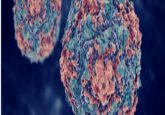Prostate cancer death markers may identify men who require more intensive treatment
In a study published recently in JAMA Oncology, a team from Brigham and Women’s Hospital (MA, US) discovered that a prostate specific antigen (PSA) nadir – i.e the lowest level a PSA drops following treatment – larger than 0.5ng/ml post radiotherapy and androgen deprivation therapy, appeared to identify patients at high-risk of early death of treatment failure for the disease, prior to PSA failure.
Prostate cancer is the second leading cause of cancer death in males in the United States with approximately 26,000 deaths attributed to the disease in 2016. Two-thirds of all deaths from prostate cancer observed in the US are in patients with localized diseased that then metastasized. There are various markers for prostate cancer death, but it is unknown whether these markers are able to identify who is likely to die early and how their performance compares to other patients.
Corresponding author on the study Trevor J Royce (Brigham and Women’s Hospital) commented: “By identifying and enrolling these men in clinical trials immediately, the hope is to take a prostate cancer that appears to be incurable and make it curable”.
Researchers utilized data from a randomized trial comprised 206 men treated either with radiation alone or with radiation combined with 6 months of hormonal therapy. The team then compared early markers of prostate cancer death as to identify which men were more at risk of early death.
“This study’s results can have practice changing implications on how future prostate cancer trials are designed in terms of identifying the men for these studies who are at high risk for early death due to ineffective initial treatment for their prostate cancer,” concluded senior author Anthony Victor D’Amico (Brigham and Women’s Hospital).
Source:
Royce TJ; Chen MH, Wu J et al. A comparison of surrogate endpoints for all cause mortality in men with localized unfavorable-risk prostate cancer JAMA Oncology doi: 10.1001/jamaoncol.2016.5983 (2016); Brigham and Women’s Hospital press release via EurekAlert www.eurekalert.org/pub_releases/2017-01/bawh-mf011017.php





